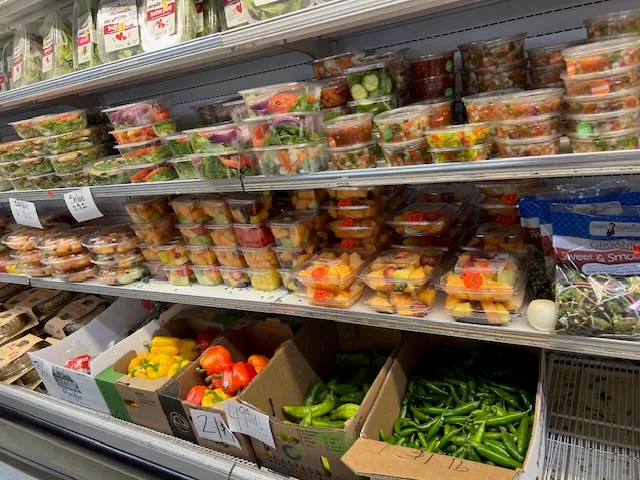Table of Contents
Food Liquidators: Reducing Waste and Making Food Affordable
In a world where food waste and affordability are pressing concerns, food liquidators play a crucial role in bridging the gap between surplus food and consumers. These businesses specialize in acquiring excess produce and grocery items from distributors, supermarkets, farmers, and other sources, and selling them at deeply discounted prices. Their operations not only make food more accessible but also contribute to sustainability by reducing waste.
What Are Food Liquidators?
Food liquidators are companies or organizations that purchase surplus or overstocked food items, often nearing their expiration dates or with minor packaging imperfections, from various suppliers. These items, which might otherwise go to waste, are then sold to consumers at significantly reduced prices.
Sources of Surplus Food
Food liquidators source their inventory from:
- Distributors and Wholesalers: Overstocked or unsold items.
- Supermarkets and Grocery Stores: Products nearing their "best before" dates or with damaged packaging.
- Farmers: Excess produce that doesn’t meet cosmetic standards for retail.
- Food Manufacturers: Surplus from production runs or discontinued products.
How Food Liquidators Operate
- Acquisition: Liquidators purchase surplus food at low costs from suppliers.
- Inspection and Sorting: Items are inspected to ensure they are safe for consumption and sorted for sale.
- Discounted Sales: Products are sold to consumers through physical stores, online platforms, or pop-up markets at prices often 30–70% lower than retail.
Benefits of Food Liquidators
- Affordable Food: They provide budget-friendly options for consumers, especially those in low-income communities.
- Waste Reduction: By rescuing surplus food, liquidators help reduce the environmental impact of food waste.
- Support for Suppliers: They offer a solution for distributors, farmers, and retailers to recover costs on unsold inventory.
- Community Impact: Many food liquidators partner with charities to donate unsold items, further supporting food security.
Challenges
- Logistics: Managing the transportation and storage of perishable items.
- Regulations: Adhering to food safety standards and labeling requirements.
- Consumer Perception: Overcoming the stigma associated with discounted or surplus food.
Examples of Food Liquidators
- AAA Closeout Liquidators: Specializes in grocery closeouts, offering a wide range of food items at below wholesale prices.
- Salvage Grocers: Operate across the U.S., providing discounted groceries and fresh produce.
- Select Liquidation: Focuses on bulk liquidation of grocery items, catering to retailers and wholesalers.
1. Finding the Cheapest Fruits and Vegetables in Portland, OR
In Portland, several grocery liquidators and discount stores sell surplus or near-expiry produce at significantly reduced prices. These stores operate outside traditional retail channels, offering discounts of 25% to 75% on perishable and non-perishable food items.
Where to Shop:
- Grocery Liquidators & Surplus Stores:
- Grocery Outlet
- Everyday Deals Grocery
- Smart Foodservice Warehouse Stores
- United Grocery Outlet
- Local ethnic markets (often offer discounts on bulk purchases)
We have identified several such stores in Portland, Oregon
Everyday Deals Grocery Liquidators.
Neighborhood market stocking a variety of produce, canned goods, and dairy, plus wine.
600 SE 146th Ave
Portland, OR 97233
Hours: Open ⋅ 9 AM - 7 PM
Phone: (503) 477-8031
On-site parking · Accepts SNAP/EBT · Accepts credit cards
Deals R Us Grocery Liquidators
Grocery discount store featuring everyday household staples, pet food, and frozen meat.
Address: 17310 SE Division St, (corner of 179th Ave), Portland, OR 97236
Hours: 9 AM - 6 PM
Phone: (503) 719-6592
Highlights: Accepts credit cards · Accepts debit cards · Accepts NFC mobile payments
Everyday Deals
Address: 9907 SE 82nd Ave, Happy Valley, OR 97086
Hours: 9 AM - 7 PM
Phone: (971) 279-2179
Highlights: Accepts SNAP/EBT · Accepts credit cards · Accepts debit cards
Right Price Market
Grocery Store
11827 NE Halsey St
Portland, OR 97220+1 (503) 312-8475
right-price-market.edan.io
Daily Deals Market
Discount Grocery Store
3552 SE 122nd Ave
Portland, OR 97236
eddgroceries.com
The Bigger Picture
Food liquidators are more than just businesses—they are part of a larger movement toward sustainability and food equity. By connecting surplus food with consumers, they help address critical issues like food waste, affordability, and access. As awareness grows, food liquidators are poised to play an even greater role in creating a more sustainable and inclusive food system.
Whether you're a budget-conscious shopper or a supplier looking to reduce waste, food liquidators offer a win-win solution for all. Their efforts remind us that with innovation and collaboration, we can make a significant impact on both the environment and our communities.








